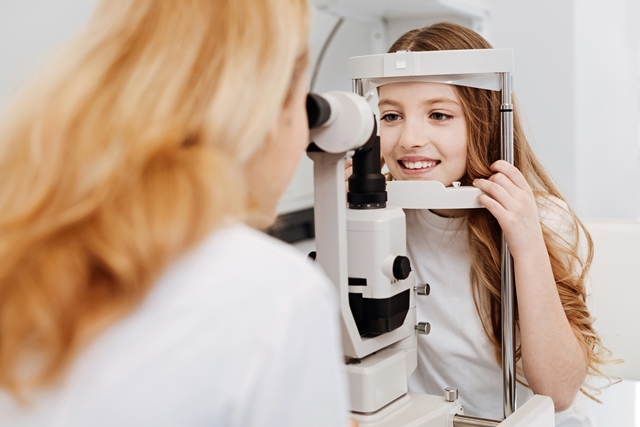An ophthalmologist or eye doctor is a doctor specialising in the detection, treatment and prevention of eye diseases and vision problems.
An ophthalmologist’s consultation is necessary:
- For children:
- before the age of 12 months
- during check-ups at the age of 3 and 6
- if changes are observed in the development of the eyes and vision.
- For adults:
- vision check is mandatory once in 1 to 3 years
- once a year after reaching the age of 40
- if recommended by a doctor
- according to a treatment plan.
An ophthalmologist should be visited immediately in case of:
- a sudden loss of vision
- increased watering of the eyes
- unusual eye pain for no obvious cause
- sudden blurring of vision
- flashing lights in the eyes, followed by a dark spot
- a marked sense of dryness, stinging in the eyes
- swollen blood vessels on the white portion of the eye and red eyes.
For a complete visit, you should take with you the following:
- medical discharge reports of any previous eye surgeries or manipulations
- the glasses you’re wearing every day
- if you wear contact lenses habitually, a container to put them in.
Procedures performed during the first-time visit
- vision acuity check
- determination of subjective refraction and glass prescription
- intraocular pressure check
- visual field test
- microscopic examination of the frontal eye fields
- direct ophthalmoscopy exam
- indirect ophthalmoscopy exam
- determination of a diagnosis (if any)
- therapy prescription, if necessary.
If necessary, the ophthalmologist will prescribe additional diagnostic exams, manipulations, laser therapy, medication injections or recommend an eye surgery.
Please note:
In order to be able to examine the eyes and vision, eye-drops dilating the pupils are used during the exam. It can reduce visual acuity for up to 4 hours, so the patient should be aware in advance of the possible impairment of visual functions during this period, preventing from driving a vehicle, reading, writing, and generally from doing any serious work that requires good eye vision. To avoid the discomfort caused by sunlight and bright light, wearing sunglasses is recommended until the effect of the eye-drops is gone.




